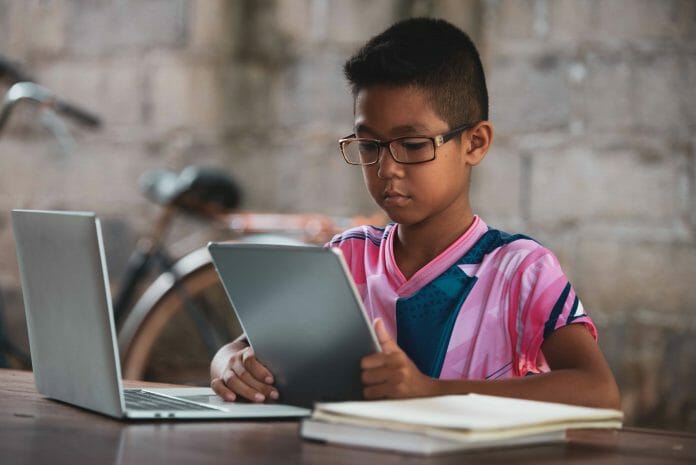Children’s privacy and security online are becoming one of the parents’ most prominent concerns. Over 9 in 10 children between seven- to 12-years old globally now have an internet-enabled device, smartphone or tablet.
The most dangerous online threats, are children seeing harmful content, such as sexual or violent (27 percent); experiencing internet addiction (26 percent); and receiving anonymous messages or content inciting them to carry out the violent or inappropriate activity (14 percent).
According to the latest survey commissioned by Kaspersky and conducted by the market research company Savanta, 84 percent of parents globally are worried about their children’s online safety but only 58 percent of those surveyed spend less than 30 minutes discussing the subject, which is half the time of one standard school lesson.
Parents acknowledged the fact it’s their responsibility to provide their children with guidance but are finding such conversations difficult. The main challenges faced are:
- 60 percent find difficulty to explain the threats in a way that children can understand and relate to
- 51 percent find it hard to get their children to take the threats seriously
- 42 percent can’t dissuade children from following and/or giving them the confidence to not follow peer pressure
Emma Kenny, a leading psychologist, TV and Radio presenter and columnist is currently working in collaboration with Kaspersky, commented on the findings:
“Whilst it is completely understandable that parents do not want their children to feel fearful about going online, it is essential that this doesn’t mean that they take a lax approach to internet safety. Balance is key and an informed child is a safe child.
“By breaking down the barriers of communication regarding online safety and etiquette, parents ensure that their children get the very best out of their cyber life whilst feeling reassured about their child’s online behaviour.
“Children need to be protected, and parents can do this by firstly educating themselves about the sites that their children visit by spending time with them as they surf the web, and secondly, by ensuring they have a reliable solution that protects their children from stumbling on inappropriate or offensive material.”
Agreeing with Emma, Marina Titova, Head of Consumer Product Marketing at Kaspersky says, “We unfortunately have to accept that the internet allows kids to encounter the content we never want them to see. Privacy and security concerns are now top of mind for parents, and we know how difficult it is sometimes talk about these concerns with children so that they listen and not push away. That’s why Kaspersky is committed to introducing solutions and recommendations for the whole family that provide parents and kids with peace of mind.”
Kaspersky recommends:
- If you know what your child is looking for online, you can offer help and support, but use the information carefully
- Discuss with your child how much time they can spend on social media. Try to persuade your child not to use social media during school lessons or at night.
- Try not to limit your child’s social circle, but tell them to take care when choosing friends and acquaintances.









